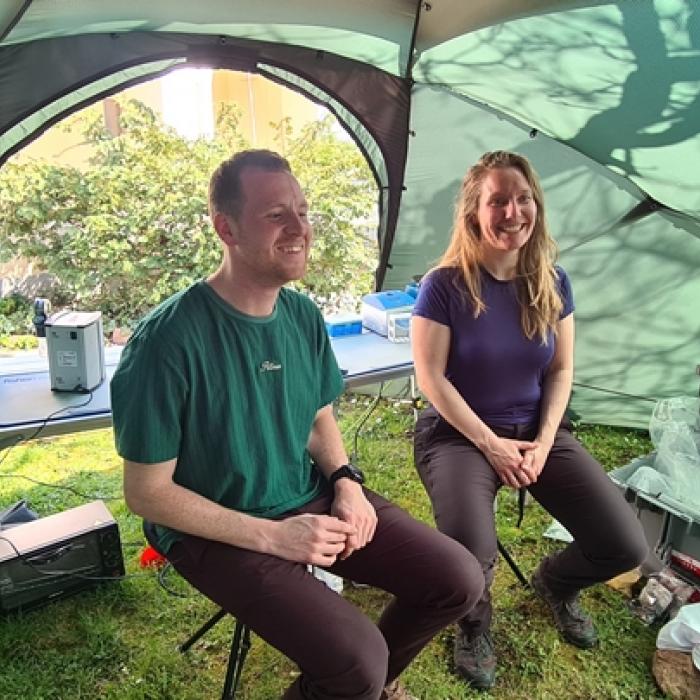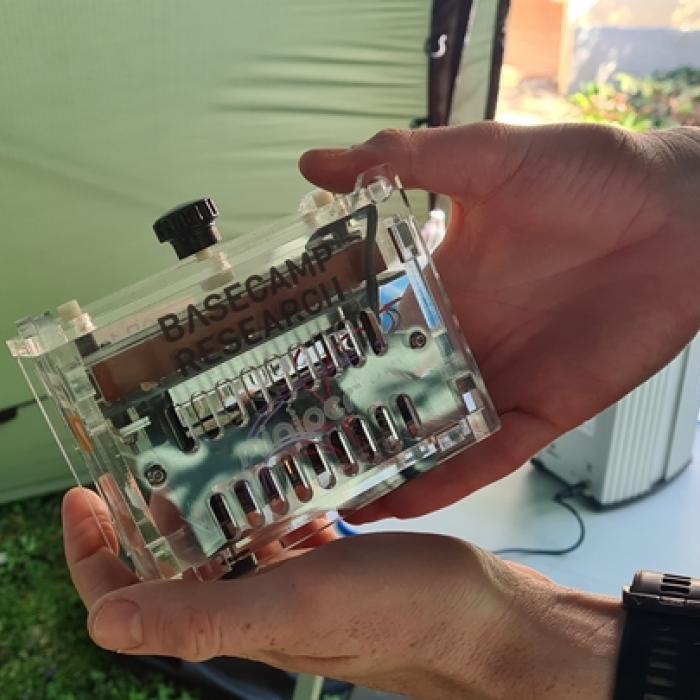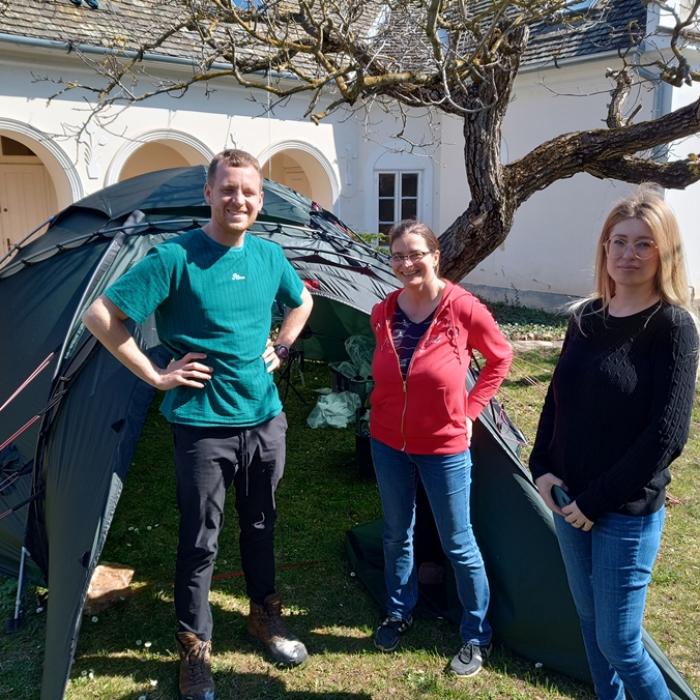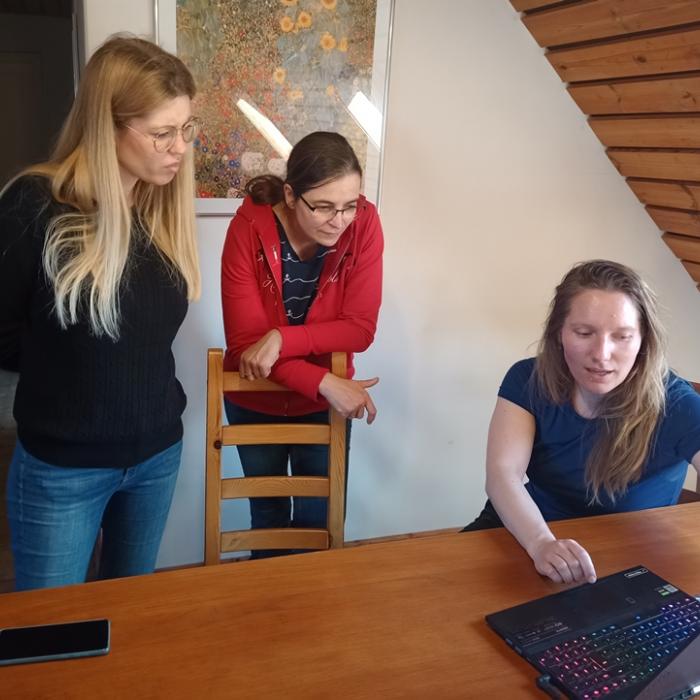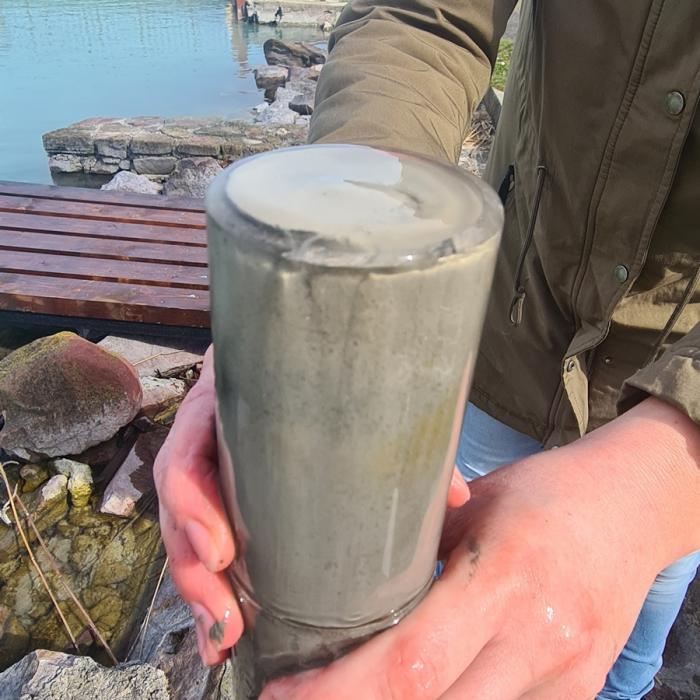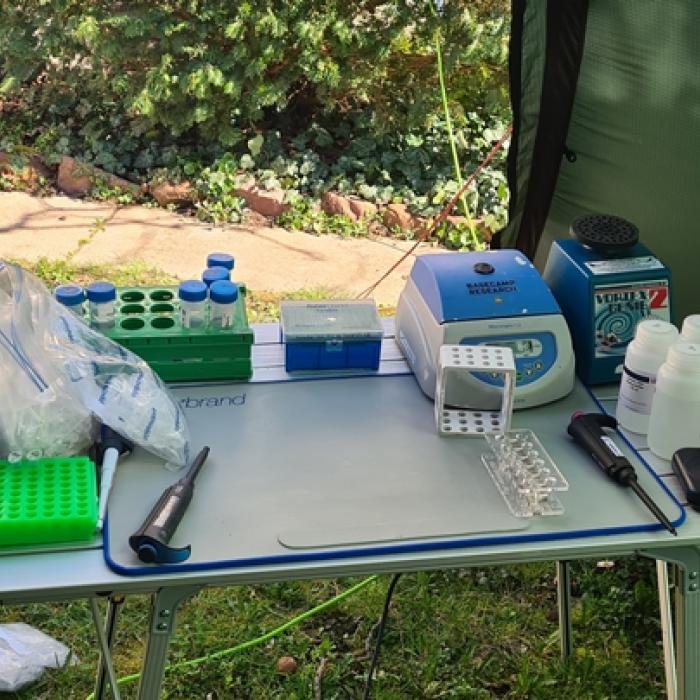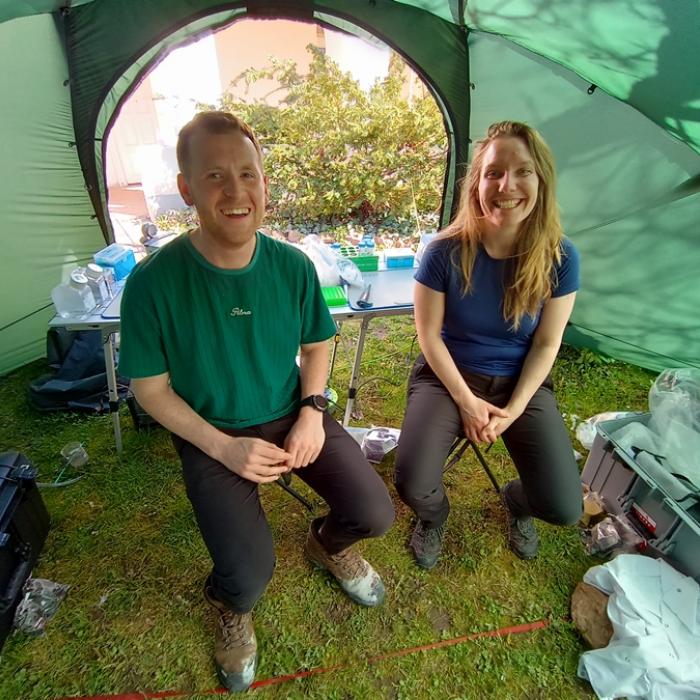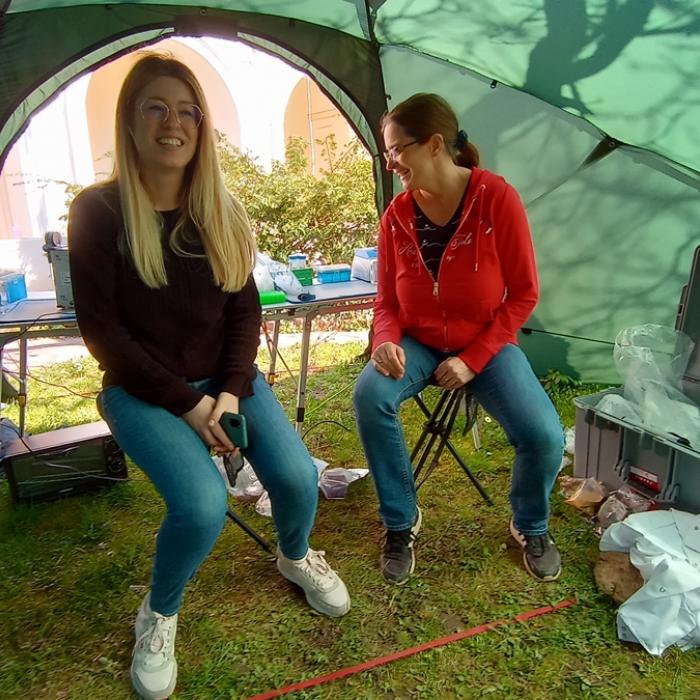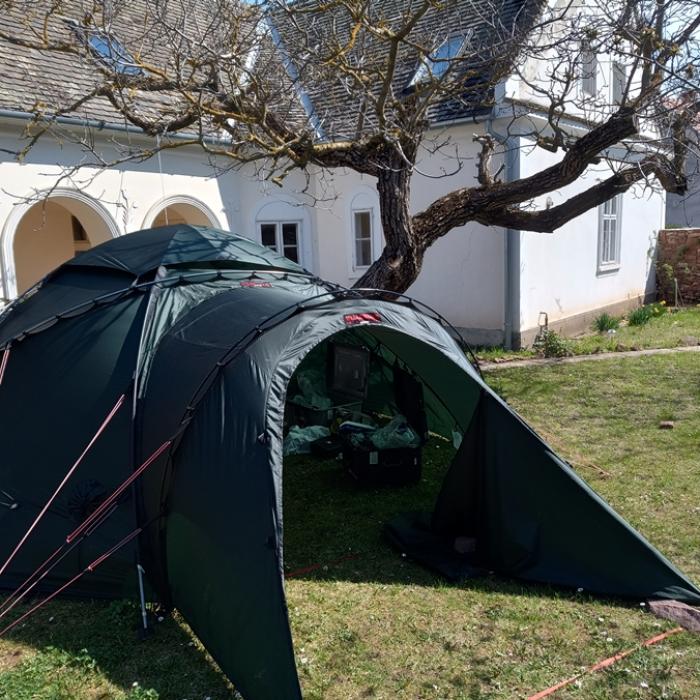A Londoni központú BASECAMP RESEARCH cég két munkatársa (Ineke Knot és Marlon Clark) látogatott el hazánkba, hogy a természetből származó, új biokémiai anyagokat keressenek. A munkában intézetünk Hidrobotanikai és Mikrobiális Ökológiai Kutatócsoportja is részt vett. A kutatók a Tapolcai-medencében gyűjtött geológiai mintáik mellett a BLKI segítségével a Keszthelyi-medencéből is vettek üledék- és vízmintákat. A későbbiekben a minták DNS-tartalmát elemzték, melyhez egy komplett miniatürizált molekuláris biológiai laboratóriumot hoztak el hazánkba. A DNS kivonást egy, a kertben felállított sátorban végezték, a szekvenálás- amelynek mi is tanúi voltunk- a szállásukon a legújabb gyártású MinION készülékkel történt. E technológia alkalmazásával akár nomád körülmények között is lehetséges DNS elemzést végezni. A látogatás során úgy éreztük, mintha a jövőbe kerültünk volna. Reméljük még lesz részünk közös munkában és várjuk az adatokat a baktériumközösség diverzitásának megismeréséhez.
A glimpse into the future: DNA analysis in the field
Two colleagues of the London-based BASECAMP RESEARCH company (Ineke Knot and Marlon Clark) visited our country to discover new biochemical substances from nature. We also participated in the work. In addition to the geological samples, they collected in the Tapolca Basin, the researchers also took sediment and water samples from the Keszthely basin with the help of BLKI. Later, a metagenomic analysis of the DNA content of the samples was carried out. They brought a miniaturized complete molecular biology laboratory to our country: DNA extraction was carried out in a tent set up in the garden, and sequencing was carried out in their accommodation with the latest MinION device, which we also witnessed. Using this technology, it is possible to perform DNA analysis even in nomadic conditions. During the visit, we felt as if we had wandered into the future. We hope to work with them again and look forward to the data they will send us to understand the diversity of the bacterial community.



